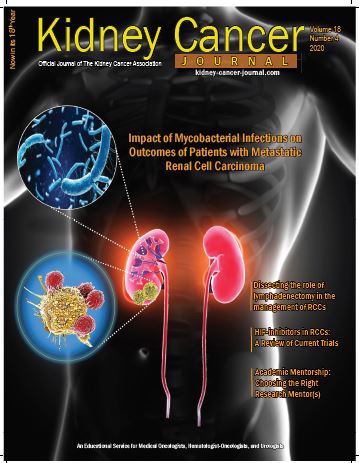Editor Memo
Impact of COVID-19 On Clinical Trial Accrual & Delayed Diagnosis of Cancer

As we are fast approaching the holiday season this year and beginning of 2021, the status of the pandemic still looms large with no signs of slowing down. The COVID-19 pandemic has disrupted virtually every aspect of cancer care and clinical trials – from adding further risks for cancer patients, to impeding the delivery of cancer therapy, and the continuity of cancer clinical trials. For people living with cancer and even for those who have gone into remission but still require continued care/follow-up testing, the COVID-19 pandemic has posed enormous challenges to cope with new normal.
Clinical trials across diseases including cancers are impacted by quarantines, medical resources and drug supply disruptions, shortages of staffs, site closures and travel limitations. Due to the pandemic related logistic barriers, clinical trial accrual fell about 50% immediately after the COVID-19 outbreak with some cancer centers halting enrollment on clinical trials entirely during the height of the pandemic. Major pharma companies have announced delays in enrollment for ongoing studies and initiation of future studies. Since the pandemic, a sharp decline in cancer diagnoses and routine screening were observed around the world. In the patient care setting, COVID-19 pandemic has led to elective and potentially curative surgery delays for patients with cT1b-cT2b renal cell carcinoma. However, preliminary research has indicated that up to and beyond 3 months of surgical delays did not result in an increased risk of pT3a upstaging or compromise overall survival. In the following months, a downstream ripple effect throughout the cancer care continuum could be possible from the drop-off in screenings and diagnoses, decreased patient visits, biopsies, and cancer treatments etc. Most importantly, the global efforts geared towards developing therapeutics or vaccine for COVID-19 are taking up a lot of oxygen in the oncology clinical trial space. Apparently, most of the existing cancer and non-COVID-19 research efforts are largely being set aside in favor of COVID-19 trials. Such government and industrywide push toward COVID-19 remedies shifted focus away from existing lines of clinical research, which creates uncertainty as to how to proceed with future cancer clinical trials. Even with those trials that are not terminated, the outbreak changed the way cancer clinical trials are conducted and reported, with potentially lasting implications due to pandemic-related logistical barriers.
While COVID-19 has complicated the treatment of cancer patients and continuing clinical research, it has also spurred creative solutions especially remote or decentralized clinical trials. The newly developed recommendations in light of COVID-19 impact could improve the overall trial process and also serve as a silver lining to the trials in the long term. Several measures including the leveraging of telehealth, use of e-signatures, remote monitoring of trials, and outside lab testing are effectively being exploited to make the best out of the situation. Other changes include delaying recruitment, implementing COVID-19 screening procedures, expediting changes in trial protocol and exploring alternative drug administration methods are already in place. The NCI also has released guidance specific to cancer clinical trials, including recommendations on the overnight shipping of medications to trial participants. Amid the outbreak, the widespread use of telemedicine has emerged as one of the positive changes to clinical trials. Some studies involving patients with cancers indicate that telehealth was not only associated with a higher quality of life and less depression and distress compared with usual care but also can be just as effective as in-person meetings.
In the past decade alone, breakthroughs in immunotherapy including anti-PD-1 and anti-PD-L1 based agents have revolutionized the cancer management. However, now there may be a lag before this development can take off post COVID-19 pandemic as the pandemic threatens to set back the pipeline of such oncology agents by several years. Currently, it still remains unclear whether immune checkpoint inhibitors and other immunotherapies worsen or benefit the outcomes in patients who have cancer and COVID-19 infection. Recent study conducted at the MSKCC highlighted that there was an association of immune check inhibitors with increased ICU admission rate, but did not increase the risk of mortality1. Given the limited and conflicting data on the benefit/risk of ICI therapies to patients with cancer in the pandemic setting, oncologists are left alone to carefully assess the risks and benefits managing ICI therapy on a case-by-case basis. Physicians should weigh the advantages of relapse-free survival benefit against the COVID-19 associated risks. Given the lack of robust clinical data, caution must be taken while continuing ICIs in patients with cancer who may be affected by COVID-19. It seems reasonable to suggest in patients with metastatic disease without COVID-19, ICI therapy may not be withheld. Multicenter retrospective studies will be required to provide more definitive guidance on the role of immune checkpoints in COVID-19 infection for clinicians.
Ever since the outbreak, the most inspiring aspect is that oncologists and their team members showed incredible resilience and resolve to deal with the unforeseen crisis, by exploiting timely strategies including adopting telehealth, workflow reorganization, and safety processes enhancements at their clinics. It is imperative for clinicians and researchers to learn and continuously adapt to the new standards of cancer care and risk management through implementing reforms, with the hope that we can find a silver lining in improving research efficiency and outcomes in the face of the pandemic crisis.
Reference:
1. Determinants of COVID-19 disease severity in patients with cancer. Robilotti EV et al. Nat Med. 2020 Aug; 26(8):1218-1223.

